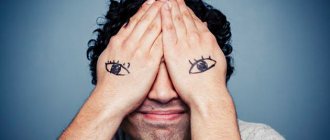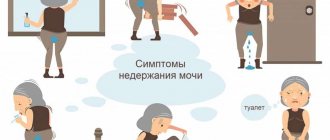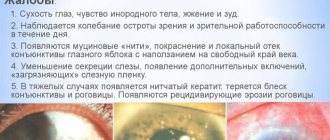1. What do I need to know about the side effects of chemotherapy? 2. What are the side effects of chemotherapy? 3. The effect of chemotherapy on the condition of hair, nails, skin 4. The effect of chemotherapy on the reproductive system 5. Anemia during chemotherapy - how to treat? 6. What to do if there is bleeding during chemotherapy treatment? 7. Renal dysfunction 8. What to do in case of memory and attention problems? 9. What is important to tell your doctor before starting chemotherapy?
The drugs used during chemotherapy are aimed at fighting cancer cells, and their main mechanism of action is to kill fast-growing cells, and cancer cells tend to grow quickly.
Because chemotherapy drugs are distributed throughout the body, they can affect normal, healthy cells that also grow quickly (such as cells in hair follicles or nail beds). Chemotherapy's effect on healthy cells can cause side effects that are not always harmful to the body, but many patients worry about this part of cancer treatment.
The healthy cells in the body that are most susceptible to chemotherapy are:
- red blood cells produced in the bone marrow;
- hair follicle cells;
- cells of the mucous membranes found in the mouth, digestive tract and reproductive system.
In rare cases, some of the chemotherapy drugs can damage cells in the heart, kidneys, bladder, lungs, and nervous system.
However, in each individual case of the disease, before prescribing treatment, the medical center’s specialists determine the level of chemotherapy load so that it is strong enough to fight cancer, but at the same time has minimal side effects for the patient’s body.
What do I need to know about the side effects of chemotherapy?
The severity of side effects varies greatly from person to person and varies from person to person.
Talk with your doctor about the likelihood of side effects in your case. Your doctor may prescribe medications to help prevent certain side effects before they happen and to help relieve symptoms during treatment. Some chemotherapy drugs cause long-term side effects, such as heart or nerve damage, or fertility problems. However, many people do not have long-term problems with chemotherapy. Although the side effects can be unpleasant, they must be weighed against the need to destroy cancer cells.
From the beginning of chemotherapy treatment, unpleasant symptoms may appear from the first hours of drug administration, continue throughout the entire course and be delayed in time - occurring 2-7 weeks after the end of the chemotherapy course.
After completing the course of treatment, most unpleasant symptoms disappear fairly quickly and only a few of them can be felt for a longer period of time. The recovery time after treatment is very individual.
Immunotherapy for kidney cancer
Immunotherapy is a relatively young and very promising area in oncology. Doctors use different methods to activate a patient's immune system and force it to destroy cancer cells. Two types of immunotherapy drugs are used for kidney cancer: cytokines and checkpoint inhibitors.
.
Cytokines are substances that stimulate the immune system as a whole. These drugs help only a small number of patients:
- Interleukin-2 (IL-2)
is most effective in high doses, but it can cause significant side effects, so it is prescribed to patients who do not have underlying serious health problems or when targeted drugs are ineffective. Interleukin-2 helps to slow down tumor progression for a long time. The drug is administered intravenously. - Interferon-alpha
is usually prescribed in combination with targeted drugs. It causes fewer side effects than interleukin-2, but is less effective. In most cases, interferon-alpha is administered subcutaneously three times a week.
Checkpoint inhibitors are the most modern group of immunotherapy drugs. They affect the molecular mechanisms by which the immune system controls its own activity. Checkpoints are called inhibitory molecules. They suppress the immune system. Normally, this helps prevent damage to healthy tissue and severe autoimmune diseases. But the same mechanisms are sometimes used by cancer cells to evade the antitumor immune response.
Two checkpoint inhibitors are used for kidney cancer:
- Nivolumab (Opdivo)
blocks the PD-1 protein on the surface of T cells. This protein interacts with the ligand PD-L1 and inactivates immune cells. The immunodrug removes this block. Nivolumab is prescribed to some patients who have previously been treated with other drugs, but despite treatment, the tumor continues to grow. Typically, nivolumab is administered intravenously every 2 weeks. - Opdivo is sometimes
used in combination with another checkpoint inhibitor, ipilimumab (Yervoy). This drug blocks another molecule – CTLA-4.
Checkpoint inhibitors are prescribed to reduce the size of the tumor, slow its growth and prolong the patient’s life.
What are the side effects of chemotherapy?
Most people worry about whether they will have side effects from chemotherapy and, if so, what they will be. Here are some of the most common side effects caused by chemotherapy:
- immune system (infectious diseases);
- digestive system (changes in appetite, nausea, vomiting, constipation, diarrhea, inflammation of the mucous membranes, liver damage);
- condition of hair, nails, skin (hair loss, dry skin, discoloration);
- reproductive system (changes in libido and sexual function, fertility problems);
- circulatory system (anemia, easy bruising and bleeding);
- nervous system (impaired memory and concentration, mood swings, neurological problems);
- kidneys (impaired urination, changes in the bladder and kidneys);
- weight change;
- fast fatiguability.
Immunity during chemotherapy can be significantly weakened. During this period, the body is especially susceptible to infections; respiratory tract infections, fungal diseases, and the herpes virus may worsen.
This is due to the effect of chemotherapy on the bone marrow, which produces the body's protective cells - leukocytes.
If there is a decrease in leukocytes in the blood, the doctor will prescribe medications that increase the number of leukocytes in the blood.
IMPORTANT! Do not self-medicate. If you have a fever or other signs of infection (swelling, cough, headache, stuffy nose, chills, fever), you should consult your oncologist.
Digestive problems during chemotherapy are the most common, including: loss of appetite, nausea and vomiting, diarrhea, constipation, stomatitis, inflammation of the mucous membranes of the gastrointestinal tract. More serious side effects, such as liver damage, may also occur.
To treat digestive-related side effects, your doctor may prescribe medications to prevent or control unpleasant symptoms. Special attention should be paid to nutritional features.
Basic nutritional tips to avoid side effects:
- eat little and often;
- eat healthy foods with high nutritional value;
- eat food with neutral taste, smell and aroma;
- drink more fluids;
- add aromatic spices to food to increase appetite;
- exclude fried, fatty, spicy, coarse foods;
- eliminate smoking and alcohol.
Indications for rehabilitation after chemotherapy
Rehabilitation is indicated for patients undergoing chemotherapy in the following situations:
- the first course of chemotherapy or subsequent cycles of drug administration carried out within the walls of our clinic;
- cancer treatment or the beginning of rehabilitation after chemotherapy under compulsory medical insurance in other clinics and hospitals (continuation of treatment and recovery);
- prevention of possible consequences that may arise in the later period - prevention of infectious diseases, hepatitis, development of chronic anemia, decreased immune function;
- complete recovery after treatment of tumor formations and improving the quality of life of patients, returning them to their normal lives.
When choosing where to undergo rehabilitation after chemotherapy, it is worth considering the fact that SM-Clinic provides a course of rehabilitation treatment after any form of cancer chemotherapy.
The effect of chemotherapy on the condition of hair, nails, skin
Chemotherapy affects the condition of your skin, nails and hair, as their cells regenerate quickly and are especially sensitive to chemotherapy.
Hair loss (alopecia) due to chemotherapy occurs after several weeks of treatment. This is a harmless side effect, but it causes a lot of inconvenience.
Remember that this is a temporary side effect; your hair will return 3-6 months after completing chemotherapy.
What to do with alopecia?
- try changing your hairstyle: cut your hair short, shave your head, pick up a wig;
- treat your hair with care (use mild shampoo);
- Protect your head from ultraviolet radiation and strong temperature changes.
The condition of your skin and nails may also change during chemotherapy. Your skin may become particularly dry and flaky, your sensitivity to ultraviolet light may increase, and your nails may begin to yellow and peel.
What to do?
- protect your skin from ultraviolet radiation by using creams and hygienic lipstick with a high protection factor;
- Avoid visiting the solarium and taking hot water baths;
- take good care of hygienic skin and nail care;
- try to shave less to reduce the risk of damaging your skin;
- cut your nails short;
- When washing dishes and cleaning, use protective gloves;
The effect of chemotherapy on the reproductive system
Chemotherapy affects the reproductive system of the female and male body. Chemotherapy drugs reduce the level of sex hormones; in women they can cause menstrual irregularities and premature menopause. In men, side effects from chemotherapy can include impaired erectile function, decreased libido, and irritability.
Young people are more resistant to chemical effects on the reproductive system and restore functions faster, unlike older people.
Chemotherapy drugs also affect fertility - it is worth discussing with your doctor the possibility of having children before undergoing treatment.
What to do?
- consult a doctor, he may prescribe you a course of hormonal therapy;
- use a condom, as chemotherapy drugs can get into the sperm;
- Use lubricants for vaginal dryness.
Rehabilitation of cancer patients after chemotherapy
When developing a course of treatment for cancer, a chemotherapy doctor also plans in advance rehabilitation measures between the administration of drugs. This is important to ensure that the treatment is as effective as possible and causes as few problems as possible for the patient. Between each administration of drugs, recovery is necessary, otherwise subsequent courses cannot be carried out until the condition has stabilized.
In terms of rehabilitation, various procedures and drugs can be prescribed: plasmapheresis, painkillers, hemosorption, herbal medicine, symptomatic remedies, physical therapy, diet, antidepressants, immunocorrection. Throughout the entire rehabilitation period between courses and after their completion until complete recovery, the patient is monitored by an oncologist, hematologist, therapist and other specialists (as necessary).
Anemia during chemotherapy - how to treat?
Chemotherapy affects bone marrow cells - red blood cells, and anemia can develop. Anemia is expressed in weakness, dizziness, shortness of breath. If anemia develops, urgent treatment is necessary. Your doctor may prescribe you maintenance medications, or in more severe cases, a blood transfusion.
What to do if you have anemia?
- get more rest;
- sleep at least 8 hours a day;
- limit vigorous activity;
- eat more foods containing iron.
What to do if there is bleeding during chemotherapy treatment?
By attacking bone marrow cells, chemotherapy can reduce the number of platelets in the blood, the cells that are responsible for blood clotting. If chemotherapy drugs affect blood clotting, bruises on the body, frequent nosebleeds, and a small rash on the body may occur.
What to do if there is a risk of bleeding?
- handle cutting objects carefully;
- avoid too vigorous activity, in which there is a risk of bruises and cuts;
- use an electric razor instead of a razor;
- use a soft toothbrush and avoid dental floss;
- Avoid constipation.
Kidney disorders
When undergoing chemotherapy, patients may experience side effects that affect kidney function. Chemotherapy may change the color and smell of your urine. Ask your healthcare provider what changes may occur.
If urination becomes difficult, your urine changes color (green, red, orange) or has a strong smell, be sure to tell your doctor about these symptoms.
What to do if you have kidney problems during chemotherapy?
- drink more liquid (at least 40 ml per 1 kilogram of weight) - water, fruit drinks, juices, compotes;
- Avoid drinks that contain caffeine, alcohol, and carbonated drinks.
What to do in case of memory and attention problems?
Taking chemotherapy drugs causes disruption of the nervous system and memory problems. If you experience dizziness, loss of balance, spasms and pain, or deterioration of the musculoskeletal system, tell your doctor about these conditions.
During chemotherapy, memory may be impaired and thinking may be inhibited. Sometimes, a condition called “chemo-brain” occurs, a disorder of cognitive processes associated with taking drugs that suppress cancer cells. If you experience problems with attention, memory, or confusion, talk to your doctor about overcoming these unpleasant symptoms.
What to do?
- get more rest;
- make a to-do plan and act on the list;
- ask your loved ones for help;
- create reminders in the form of notes or using an application on your phone;
- divide big things into small and specific tasks.
Targeted therapy for kidney cancer
The mechanism of action of targeted drugs differs from chemotherapy drugs. Chemotherapy damages and destroys all cells that are actively dividing, both tumor and healthy. Despite the enormous benefits of chemotherapy, they sometimes cause serious side effects. Each targeted drug has a specific “target” - a molecule that is vital for cancer cells. Blocking these molecules helps fight cancer, with fewer side effects and less severe side effects.
There are three indications for targeted therapy for kidney cancer:
- If the operation cannot be performed
- In later stages, to slow down the growth of the tumor and reduce its size. This therapy is called palliative: it helps to improve the patient’s condition and prolong his life, but does not cure cancer.
- If the disease progresses after surgery
For malignant kidney tumors, targeted drugs are used that suppress the growth of new blood vessels (the tumor needs them to receive oxygen and nutrients) and/or proteins that stimulate the proliferation of cancer cells (protein kinases, mTOR protein). There are many different drugs available in modern oncology: sorafenib, sunitinib, temsirolimus, everolimus, bevacizumab, pazopanib, axitinib, cabozantinib, lenvatinib.
Sergeev Pyotr Sergeevich
Candidate of Medical Sciences, Leading Surgeon-Oncologist, Chemotherapist, Head of the Oncology Department
“Treating kidney cancer is a difficult task. Some drugs are not effective in all patients. There are often limitations due to side effects. It is important to constantly monitor the patient’s condition, monitor the behavior of the tumor over time, and, if necessary, adjust prescriptions. It has been proven that overall survival in patients receiving targeted therapy is almost the same as after surgical treatment. Even if kidney cancer cannot be removed surgically, many patients can still be helped, relieve symptoms, and prolong life."
Targeted and immunotherapy is the gold standard treatment for patients with stage III and IV kidney cancer











